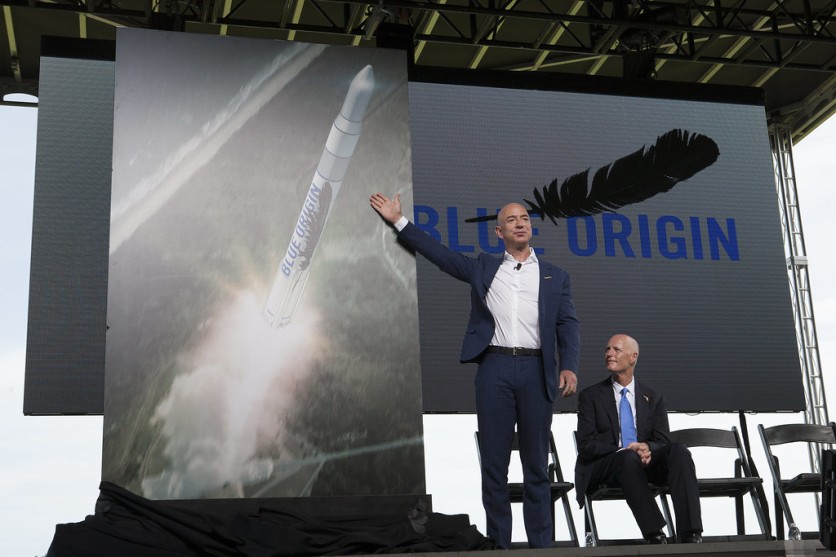
Jeff Bezos' company, Blue Origin, announces the delay of its next-generation rocket, The New Glenn, back to late 2022, saying that the loss of key Pentagon launch contracts to competitors Elon Musk's SpaceX program and United Launch Alliance (ULA) was the primary reason for its delay in the schedule.
Reasons Behind Blue Origin Shift in Schedule
CNBC reports that Blue Origin targets the fourth quarter of 2022 for New Glenn's launch, having previously stated that late 2021 is a set date
In August last year, the Department of Defense awarded SpaceX and ULA with billions worth of contracts for launchers over five years, with Pentagon selecting the two space projects over Blue Origin and Northrop Grumman.
The company stated that the updated maiden flight target follows the recent Space Force decision not to select New Glenn for the latest national security launch contracts. However, the company hopes to launch NSSL payloads and remains committed to serving the U.S. Defense mission.
Jeff Bezos, Blue Origin's founder and currently the richest man alive, has invested billions into the process of making the New Glenn rocket. The company has involved the construction of rocket production facilities in Cape Canaveral, Florida, and an extensive renovation to the Space Coast's Launch Complex 36, which Blue Origin leased in 2015.
Also Read: Jeff Bezos Blue Origin's Rocket With Powerful BE-7 Engine Will Take First Woman to Moon!
Blue Origin received $255 million of a $500 million award from the Air Force as part of a precursor program to aid New Glenn development. As planned, the company was cut off from the award's full amount after losing in the following program, as The Verge reports.
The New Glenn Rocket Program
New Glenn is the next-generation rocket that Blue Origin has been developing with a rocket booster designed to land and reused in a similar way to SpaceX's Falcon 9 and Falcon Heavy rockets. The company expects that each of their rockets is capable of repeating this process 25 times.
New Glenn would be larger than any other space rocket flying currently, and Blue Origin states that it has invested $2.5 billion in its development in the past years. The next-generation rocket stands at an estimated height of 320 feet tall and is designed to lift about 45,000 kilos of payload to low Earth Orbit.
Blue Origin has built a mockup of the booster stage of New Glenn to run tests ahead of the first launch from Florida. The company is working at LC-36 to produce a building a tower that should support launching people on New Glenn, which the company hopes to do at some time.
Blue Origin bid large amounts of launch contracts under the Air Force's next-generation national security launch program, which guaranteed two winning rocket companies multibillion-dollar contracts and a share of all Pentagon launches between 2022 to 2027. The Air Force announced its decision last year.
However, Blue Origin still lost to SpaceX and ULA, which is an alliance between Boeing and Lockheed Martin. CNet reports that Blue Origin and Northrop Grumman were the losers in the four-way space race announced last August, with SpaceX and ULA owning launch contracts worth over $300 million for multiple launches.
Blue Origin is not thrilled with losing and concludes the statement by pointing out its invested billion-dollar rebuilding of the Launch Complex 36 at Cape Canaveral Space Force Station.
Related Article: Bezos and Musk Feud Over Satellite Internet: SpaceX Wants Change in Real Estate Position, Amazon Disagrees
This article is owned by Tech Times.
Written by Luis Smith
This article is owned by Tech Times
Written by: Luis Smith




